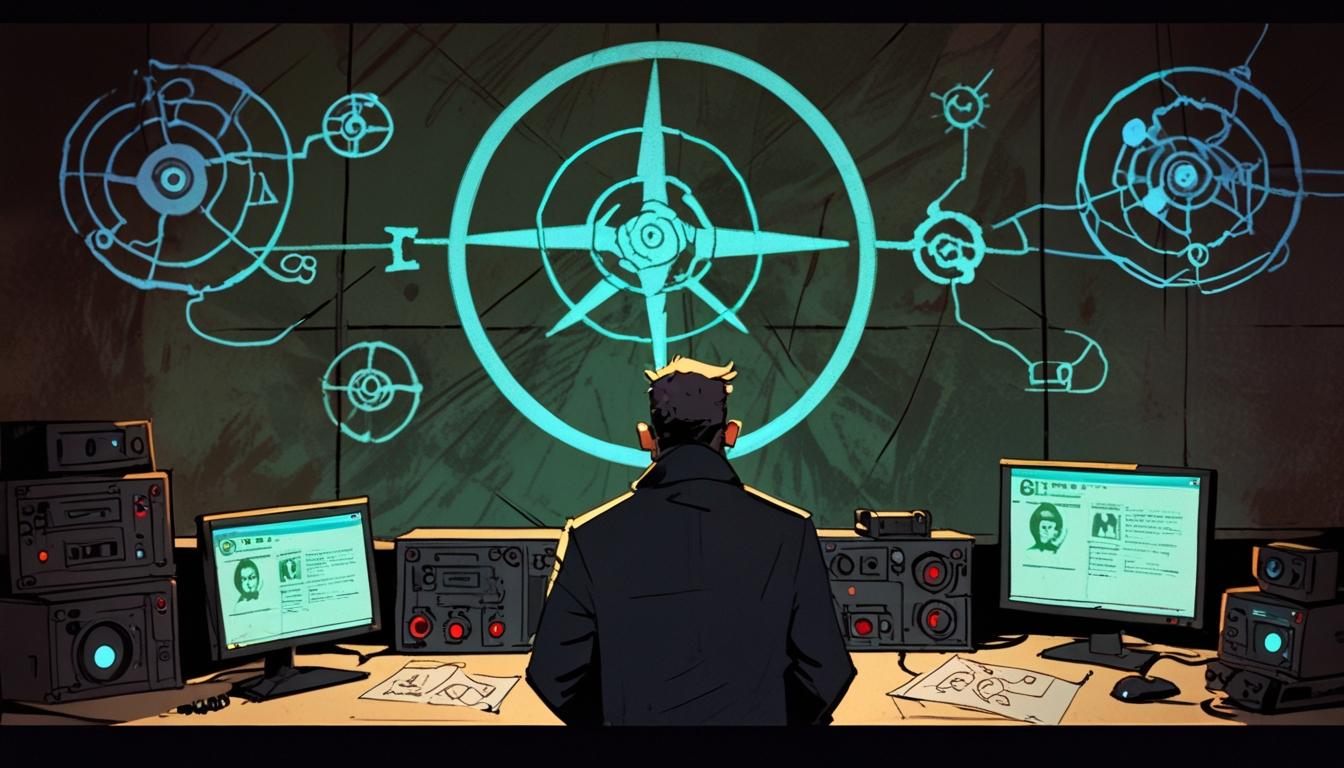Spymaster's Eerie Boast: A Peek into an International Espionage Network
In a case that has captivated public attention and raised concerns about national security, Jan Marsalek, an Austrian businessman with deep ties to Russian intelligence, allegedly boasted about the capabilities of a UK-based espionage network, claiming that he could supply nuclear weapons “if they pay.” This shocking revelation was made during the trial of six Bulgarian nationals who have been implicated in a sophisticated spying operation at the Old Bailey. Their sentencing is expected to unfold shortly, as the details of their activities paint a dire picture of espionage that potentially threatens lives and national security.
The defendants included key figures from the network, such as Orlin Roussev, who led the operation from a guesthouse in Great Yarmouth, Norfolk, and his second-in-command, Biser Dzhambazov. Among those found guilty were two women employed as "honeytrap" agents, Katrin Ivanova and Vanya Gaberova, as well as competitive swimmer Tihomir Ivanov Ivanchev. Prosecutors described their actions as "spying on an industrial scale," a term laden with implications of extensive surveillance that could have far-reaching consequences both in the UK and abroad.
The court revealed that Marsalek's role as an intermediary allowed him to communicate with Roussev about ambitious espionage goals. In one instance, following the notorious Skripal poisonings in Salisbury, he remarked that a “successful operation on British ground would be amazing.” This chilling statement underscores a broader context of Russian operations targeting perceived adversaries in the United Kingdom and beyond.
Adding to the gravity of the situation, investigative journalist Christo Grozev from Bellingcat, who was targeted by this network due to his work exposing Russian state actions, provided a victim impact statement that evoked the emotional toll of being surveilled. He described the experience as “terrifying, disorientating and deeply destabilising,” indicating that the ramifications of such spying extend well beyond physical monitoring, deeply affecting personal lives and the sense of safety.
Echoing Grozev’s sentiments, Kazakhstan dissident Bergey Ryskaliyev, who also experienced targeted surveillance, expressed ongoing fears for his safety even after the arrests of the suspects. He outlined the extensive security measures he now has to take, which have become a costly necessity for him and his family, thus illustrating the pervasive impact of this espionage on everyday lives.
The court proceedings revealed a meticulously orchestrated network that dubbed its operatives “Minions,” a name that invokes a bizarre and unsettling contrast with the beloved animated characters. The spies were equipped with an array of sophisticated surveillance technology, including hidden cameras disguised as everyday objects. Drafted messages between Marsalek and Roussev presented a startling blend of ambition and bravado, with Marsalek comparing his life as an international fugitive to that of James Bond.
As the cases surrounding these spies unfold, a pressing question emerges: what should be done to counteract such threats? With implications that transcend national borders, the revelations in this court case serve as a stark reminder of the vulnerabilities inherent in modern geopolitical landscapes, and the urgent need for enhanced vigilance against espionage activities that could threaten both lives and the integrity of nations.
In the face of these developments, the defendants now await sentencing, with potential prison terms of up to 14 years looming over them for their extensive spying activities that spanned multiple countries, thereby reinforcing the seriousness of their crimes within a global framework of espionage.
Reference Map:
- Paragraph 1 – [1]
- Paragraph 2 – [1]
- Paragraph 3 – [1]
- Paragraph 4 – [1]
- Paragraph 5 – [1]
- Paragraph 6 – [1]
- Paragraph 7 – [1]
- Paragraph 8 – [1]
Source: Noah Wire Services
